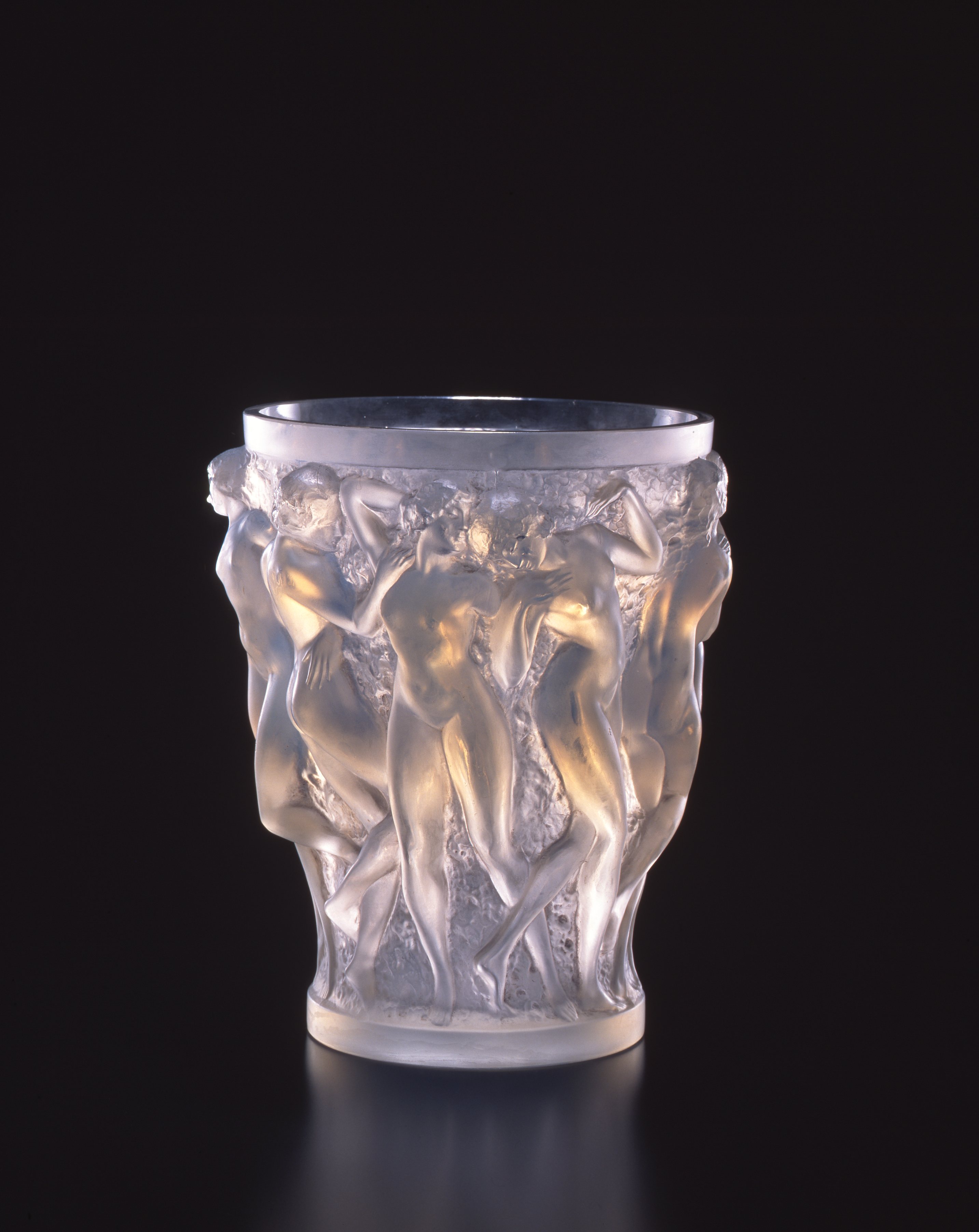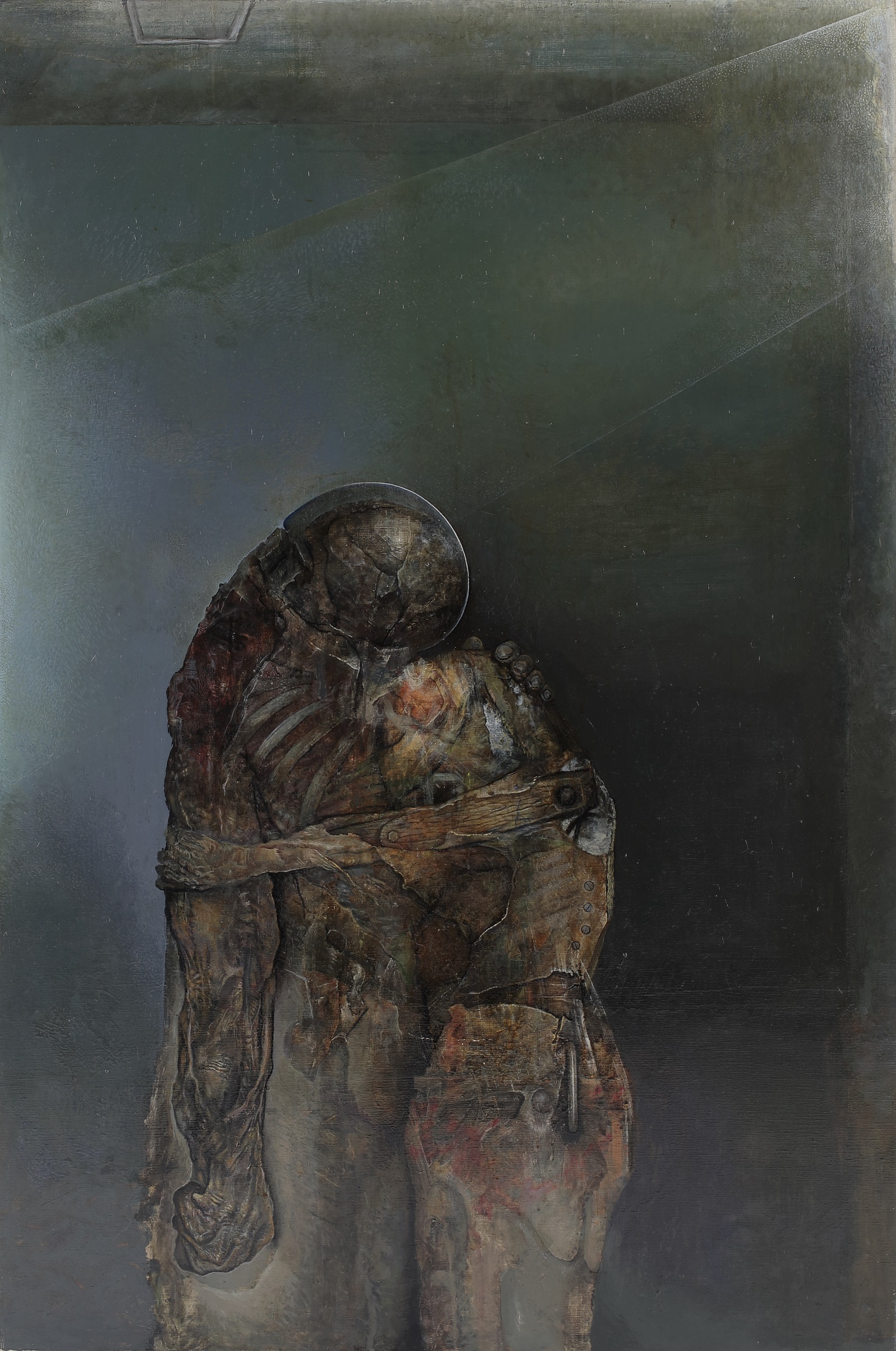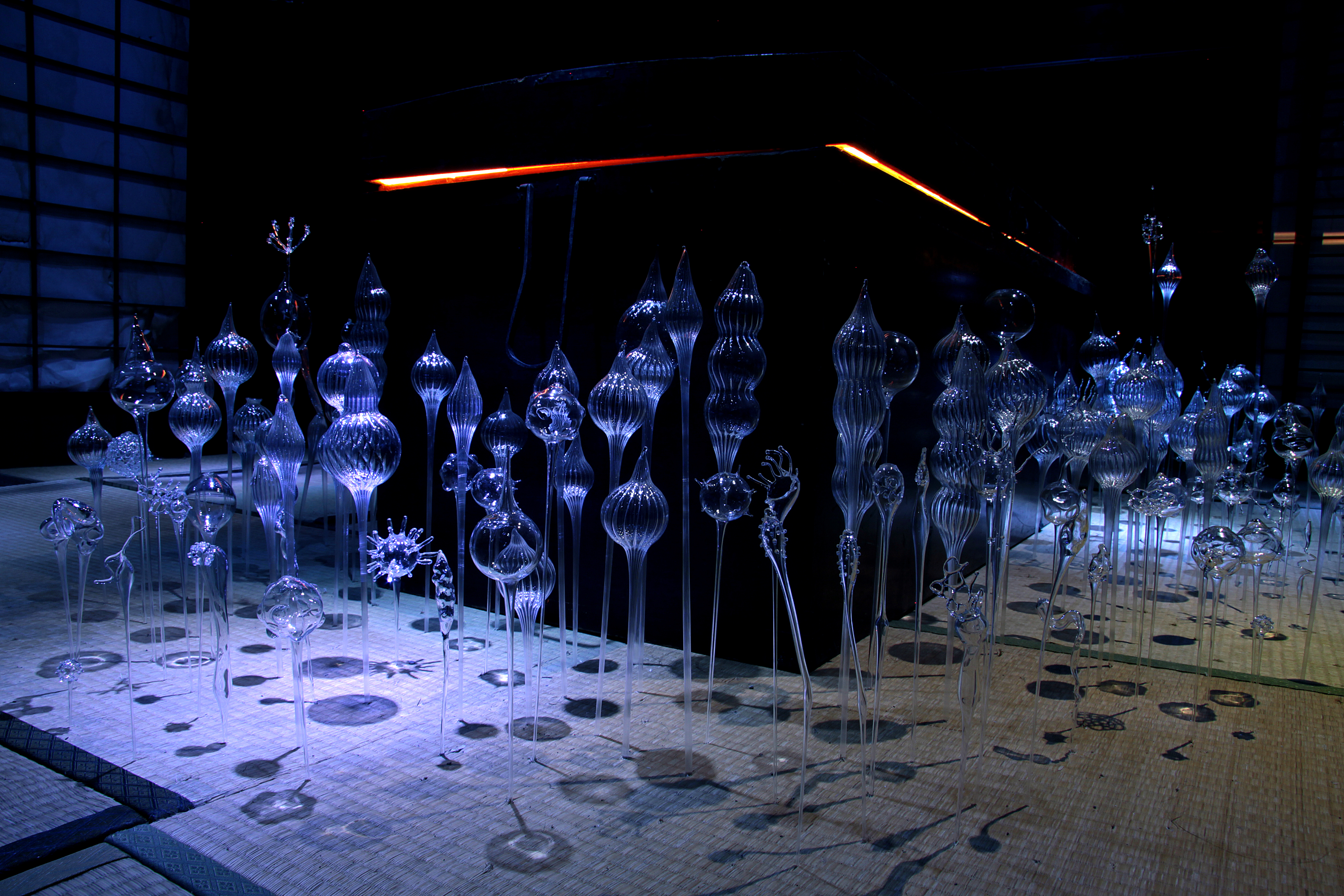Exhibitions
The Museum Collection:
Livre d’artiste: The Artist Books of Rouault, David, Matisse, and Chagall
Henri Matisse, Apollinaire, published in 1952
1st Floor: Livre d’artiste: The Artist Books of Rouault, David, Matisse, and Chagall
〈Held Currently〉
1st Floor: With Kids ’25: Japanese Paintings for Your Happiness
2nd Floor: The Ambience of Paris: Art Deco Glass / New Acquisitions / Aoki Mika, Aquarium of life and death
Gallery A will be closed on May 20 while exhibitions are being changed.
Overview
Georges Rouault, Hermine David, Henri Matisse, and Marc Chagall. These artists were quite active in Paris in the first half of the 20th century. In addition to creating oil paintings, they completed many illustrations for poetry collections and novels. Limited editions illustrated with the artists’ original prints were an innovation of the art dealer Ambroise Vollard and were called Livres d’artistes (Artists’ Books). Art lovers and bibliophiles liked to collect these limited editions. In those days, books began to be widely used by artists as a new medium of expression; thus, in 1937, ‘Books’ was chosen as a theme for the International Exposition in Paris.
By sharing networks of the literati, publishers, and printmaking studios, artists interacted with each other and sought to find their own forms of artistic expression while contemplating the relationship between text and images. This exhibition shows Artists’ Books and accompanying original prints of artists that were created from 1920 through the 1970s. These exhibits are from our museum collections. We hope you thoroughly enjoy the worlds of these artists’ stories and histories that have been preserved in these Artists’ Books.
Held Currently
With Kids ’25: Japanese Paintings for Your Happiness
Welcome to our art museum!
The title of the section starting here is “With Kids ’25: Japanese Paintings for Your Happiness.”
What do you wish for? You might have lots of wishes: to play sports well, to invent something great, to help people who are sick or who are in trouble …right?
The desires to live long, to be rich, or to be great and famous have been depicted in Japanese paintings from long ago.
What wishes do you think are indicated in the exhibits that you’ll be seeing and in which you’ll find monkeys, cranes, or Mount Fuji depicted?
And why do these things indicate such wishes?
While appreciating each work, imagine what’s hoped for.
Traditional materials that have been used to create Japanese paintings are also displayed.
How different are these from those that you usually use for painting? Look at the traditional materials and consider the differences.
*The exhibits will be changed during the duration of the exhibition.

The Ambience of Paris: Art Deco Glass
The Art Déco design style blossomed in France and European and American Countries in the 1920s. The name originates from the International Exhibition of Modern Decorative and Industrial Arts (L’Exposition Internationale des Arts Décoratifs et Industriels Modernes) held in Paris in 1925. Art Nouveau, a preceding ornamental style, highlighted the beauty of the natural world and was anti-civilization, and it was characterized by the use of curved lines and organic forms. In contrast, Art Déco welcomed mechanization and the industrialization of society and was distinguished by straight lines and geometric patterns.
Art Déco affected glassmaking. Especially in France, diverse techniques that were developed in the Art Nouveau period were used to create a wide variety of glassware through the simplification of motifs and the use of glass’s characteristic hardness, transparency, and the like.
This exhibition focuses on the fascination of glassware from the Art Déco period. The exhibits include glass works that are characterized by the straight lines and geometric patterns unique to that period, that refocus on ancient techniques, that adapt classical motifs to a contemporary style, and that combine tradition with cutting-edge expression.

New Acquisitions
An exhibition of works newly acquired by the museum.

Aoki Mika, Aquarium of life and death
Aoki Mika (1981-2022), who grew up in Sapporo, developed her practice using glass as a material in works that dealt with the connections between a wide array of life forms and shed light on minute entities that are not visible to the naked eye. Aoki’s largest installation, Aquarium of life and death, gifted to the museum in 2024, will be on display throughout the year.

Admission
Adults: 510 (420) yen / Senior high school and university students: 250 (170) yen
Combined ticket for the Museum Collection at Hokkaido Museum of Modern Art and Migishi Kotaro Museum of Art (Except special exhibitions)
Adults: 830 (670) yen / Senior high school and university students: 410 (270) yen
*Visitors 65 and over, junior high school students and younger, holders of disability ID and a caregiver, etc. are admitted free of charge. Please show a disability certificate at the reception desk.
*Senior high school students are admitted free on Saturdays and from July 1 to Aug. 31 and when visiting for educational purposes.